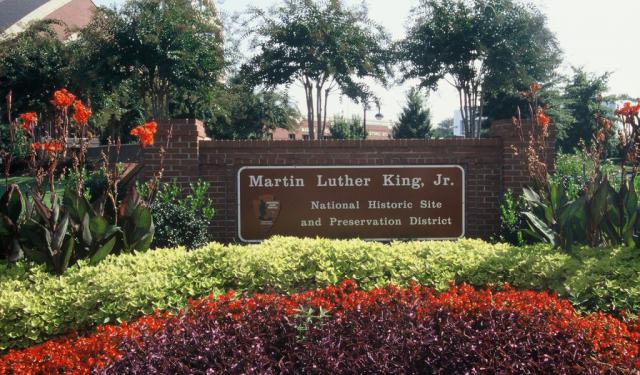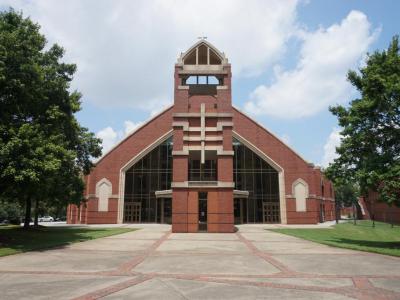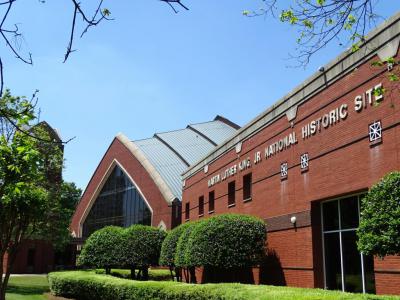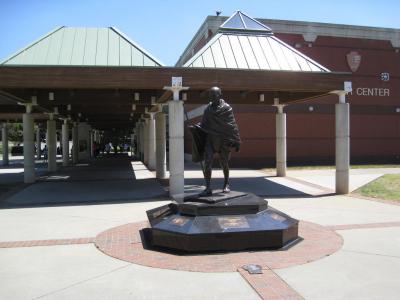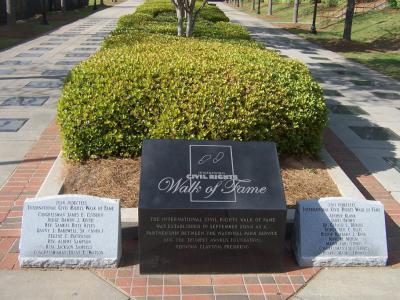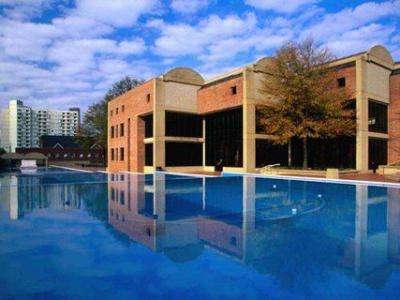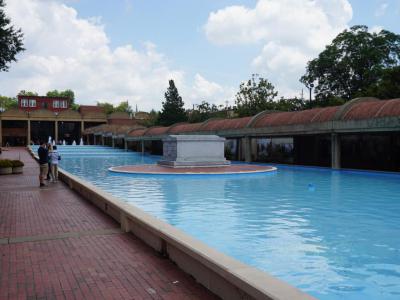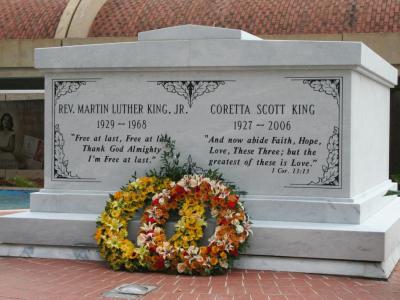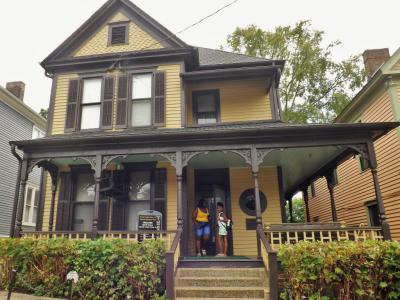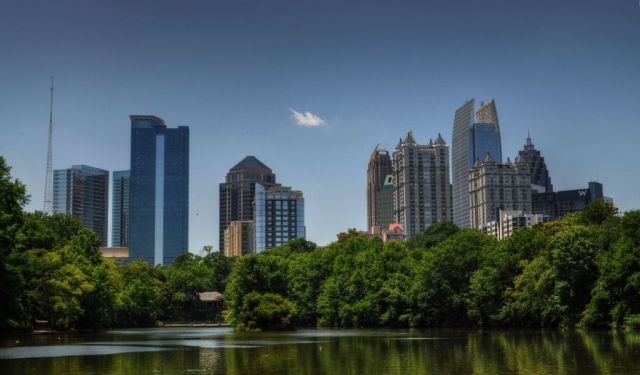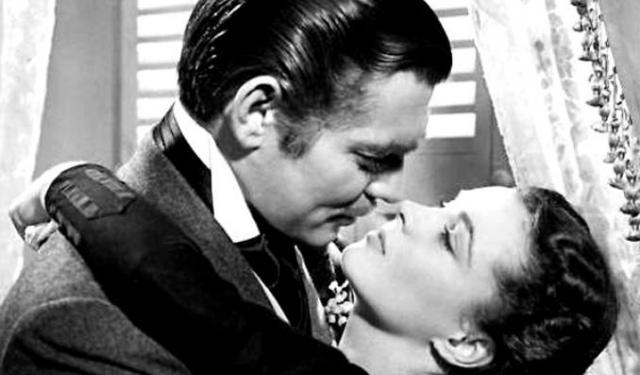Audio Guide: Martin Luther King Walking Tour (Self Guided), Atlanta
Martin Luther King Jr. once said “I was born here. I grew up here. And this city helped shape the man I became.”
Martin Luther King Jr. was born in Atlanta in 1929 into a family deeply rooted in the city’s Black Baptist tradition. Raised on Auburn Avenue, then one of African American corridors in the United States, King grew up surrounded by faith, education, and civic responsibility. His father, Martin Luther King Sr., was a prominent minister at Ebenezer Baptist Church, and his mother, Alberta Williams King, was a church organist and community leader.
After studying theology and earning a doctorate, King emerged as a civil rights leader during the Montgomery Bus Boycott. From that moment on, he became the most visible advocate of nonviolent resistance in the American Civil Rights Movement. Over the next decade, he led or supported pivotal campaigns across the South, including Birmingham, Selma, and Memphis, while delivering speeches that framed civil rights as a universal human issue rather than a regional one.
Atlanta remained King’s emotional and spiritual home throughout his life. In 1960, he returned permanently to the city and became co-pastor of Ebenezer Baptist Church alongside his father. From here, he helped lead the Southern Christian Leadership Conference and continued shaping national conversations around race, poverty, and war. King was assassinated in 1968, but Atlanta quickly became the focal point for preserving his legacy.
The Martin Luther King Jr. National Historical Park was established to protect and interpret the places most closely tied to King’s life, work, and philosophy. Centered around Auburn Avenue, the park brings together historic buildings, memorial landscapes, and interpretive spaces that tell both a personal and collective story. Rather than functioning as a single museum, the park unfolds as a walkable historic district, allowing visitors to move through the environments that shaped King’s thinking.
Walking through the park, visitors pass Historic Ebenezer Baptist Church and the active Ebenezer Baptist Church: New Horizon Sanctuary, then stop at the Martin Luther King Park Visitor Center for orientation. The route continues along the Gandhi Promenade and International Civil Rights Walk of Fame, leading to the King Center for Nonviolent Social Change, where Freedom Hall exhibitions frame the movement’s legacy. The walk ends at Dr. King’s Tomb and the Birth Home of Martin Luther King, grounding history in place.
By the end of this walk, King’s words feel less like a quote and more like a map. He was born here. He grew up here. And as you’ve seen, this city shaped him step by step—through homes, churches, streets, and voices that still carry his message forward.
Martin Luther King Jr. was born in Atlanta in 1929 into a family deeply rooted in the city’s Black Baptist tradition. Raised on Auburn Avenue, then one of African American corridors in the United States, King grew up surrounded by faith, education, and civic responsibility. His father, Martin Luther King Sr., was a prominent minister at Ebenezer Baptist Church, and his mother, Alberta Williams King, was a church organist and community leader.
After studying theology and earning a doctorate, King emerged as a civil rights leader during the Montgomery Bus Boycott. From that moment on, he became the most visible advocate of nonviolent resistance in the American Civil Rights Movement. Over the next decade, he led or supported pivotal campaigns across the South, including Birmingham, Selma, and Memphis, while delivering speeches that framed civil rights as a universal human issue rather than a regional one.
Atlanta remained King’s emotional and spiritual home throughout his life. In 1960, he returned permanently to the city and became co-pastor of Ebenezer Baptist Church alongside his father. From here, he helped lead the Southern Christian Leadership Conference and continued shaping national conversations around race, poverty, and war. King was assassinated in 1968, but Atlanta quickly became the focal point for preserving his legacy.
The Martin Luther King Jr. National Historical Park was established to protect and interpret the places most closely tied to King’s life, work, and philosophy. Centered around Auburn Avenue, the park brings together historic buildings, memorial landscapes, and interpretive spaces that tell both a personal and collective story. Rather than functioning as a single museum, the park unfolds as a walkable historic district, allowing visitors to move through the environments that shaped King’s thinking.
Walking through the park, visitors pass Historic Ebenezer Baptist Church and the active Ebenezer Baptist Church: New Horizon Sanctuary, then stop at the Martin Luther King Park Visitor Center for orientation. The route continues along the Gandhi Promenade and International Civil Rights Walk of Fame, leading to the King Center for Nonviolent Social Change, where Freedom Hall exhibitions frame the movement’s legacy. The walk ends at Dr. King’s Tomb and the Birth Home of Martin Luther King, grounding history in place.
By the end of this walk, King’s words feel less like a quote and more like a map. He was born here. He grew up here. And as you’ve seen, this city shaped him step by step—through homes, churches, streets, and voices that still carry his message forward.
How it works: Download the app "GPSmyCity: Walks in 1K+ Cities" from Apple App Store or Google Play Store to your mobile phone or tablet. The app turns your mobile device into a personal tour guide and its built-in GPS navigation functions guide you from one tour stop to next. The app works offline, so no data plan is needed when traveling abroad.
Martin Luther King Walking Tour Map
Guide Name: Martin Luther King Walking Tour
Guide Location: USA » Atlanta (See other walking tours in Atlanta)
Guide Type: Self-guided Walking Tour (Sightseeing)
# of Attractions: 9
Tour Duration: 1 Hour(s)
Travel Distance: 1.0 Km or 0.6 Miles
Author: doris
Sight(s) Featured in This Guide:
Guide Location: USA » Atlanta (See other walking tours in Atlanta)
Guide Type: Self-guided Walking Tour (Sightseeing)
# of Attractions: 9
Tour Duration: 1 Hour(s)
Travel Distance: 1.0 Km or 0.6 Miles
Author: doris
Sight(s) Featured in This Guide:
- Historic Ebenezer Baptist Church
- Ebenezer Baptist Church: New Horizon Sanctuary
- Martin Luther King Park Visitor Center
- Gandhi Promenade
- International Civil Rights Walk of Fame
- King Center for Nonviolent Social Change
- Freedom Hall
- Dr. King's Tomb
- Birth Home of Martin Luther King, Jr.
1) Historic Ebenezer Baptist Church
Historic Ebenezer Baptist Church is preserved to evoke the years 1960–1968, when it functioned as the spiritual home base of the Civil Rights Movement and the pulpit of Martin Luther King Jr.. As you enter the sanctuary, you’re meant to experience it much as congregants did in the 1960s. Begin by moving upstairs to the balcony level, where the National Park Service encourages visitors to sit and listen to recordings of King’s sermons and speeches played throughout the space.
From the balcony, make your way down toward the main floor, positioning yourself in the central seating area facing the pulpit. This is where King regularly preached after becoming co-pastor in 1960 alongside his father, Martin Luther King Sr. The church’s significance extends well beyond that period: Ebenezer was founded in 1886, King was baptized here, delivered his trial sermon at age 19, and was ordained as a minister in this very space. He remained co-pastor until his assassination in 1968, and his funeral service was also held here, underscoring the church’s role across every stage of his life.
As you move slowly through the sanctuary, pay attention to details that were carefully addressed during restoration. Look upward to the stained-glass windows and the balcony rail, then toward the front of the sanctuary where the pipe organ is located. Near the front, the baptistery anchors the space as a reminder that this was, and remains, a living house of worship.
When you’re ready for deeper context, head downstairs to the Fellowship Hall, located beneath the sanctuary. Here you’ll find interpretive exhibits outlining the church’s history, along with a video interview featuring Dr. Christine King Farris, King’s sister, reflecting on family life and Ebenezer’s role in the movement.
From the balcony, make your way down toward the main floor, positioning yourself in the central seating area facing the pulpit. This is where King regularly preached after becoming co-pastor in 1960 alongside his father, Martin Luther King Sr. The church’s significance extends well beyond that period: Ebenezer was founded in 1886, King was baptized here, delivered his trial sermon at age 19, and was ordained as a minister in this very space. He remained co-pastor until his assassination in 1968, and his funeral service was also held here, underscoring the church’s role across every stage of his life.
As you move slowly through the sanctuary, pay attention to details that were carefully addressed during restoration. Look upward to the stained-glass windows and the balcony rail, then toward the front of the sanctuary where the pipe organ is located. Near the front, the baptistery anchors the space as a reminder that this was, and remains, a living house of worship.
When you’re ready for deeper context, head downstairs to the Fellowship Hall, located beneath the sanctuary. Here you’ll find interpretive exhibits outlining the church’s history, along with a video interview featuring Dr. Christine King Farris, King’s sister, reflecting on family life and Ebenezer’s role in the movement.
2) Ebenezer Baptist Church: New Horizon Sanctuary
The New Horizon Sanctuary was completed in 1999 and seats approximately 1,600 people. Its construction reflected the congregation’s deliberate decision to remain rooted in downtown Atlanta at a time when many churches were relocating to suburban areas. Today, the building forms an integral part of the Martin Luther King Jr. National Historical Park, continuing Ebenezer’s long-standing role as a living place of worship rather than solely a historic site.
Ebenezer has two main worship spaces facing each other across Auburn Avenue. The Historic Sanctuary is the older brick church on the south side of Auburn Avenue, preserved as the 1960s-era setting most associated with Martin Luther King Jr.’s ministry and the Civil Rights Movement. Directly across Auburn Avenue on the north side is the New Horizon Sanctuary, the larger, modern building used for regular worship and major gatherings.
If you’re standing on the north side of Auburn Avenue with the New Horizon Sanctuary in front of you, the open forecourt called Peace Plaza is the outdoor space that sits between the sanctuary and the National Park Service visitor facilities nearby. The bell tower rises as a vertical marker at the edge of this plaza, close to the street line. The educational building sits immediately alongside the sanctuary, functioning like the campus’s classroom and program wing. The prayer garden is set off from the street-facing plaza in a quieter pocket beside the complex.
Architecturally, the building draws inspiration from African communal meeting structures. Its interior roof ribbing evokes the texture and rhythm of traditional thatch construction, while the freestanding bell tower takes the form of a patterned obelisk, incorporating woven and symbolic motifs. The result is a modern sacred space that consciously references African heritage while serving the practical needs of a contemporary congregation.
Ebenezer has two main worship spaces facing each other across Auburn Avenue. The Historic Sanctuary is the older brick church on the south side of Auburn Avenue, preserved as the 1960s-era setting most associated with Martin Luther King Jr.’s ministry and the Civil Rights Movement. Directly across Auburn Avenue on the north side is the New Horizon Sanctuary, the larger, modern building used for regular worship and major gatherings.
If you’re standing on the north side of Auburn Avenue with the New Horizon Sanctuary in front of you, the open forecourt called Peace Plaza is the outdoor space that sits between the sanctuary and the National Park Service visitor facilities nearby. The bell tower rises as a vertical marker at the edge of this plaza, close to the street line. The educational building sits immediately alongside the sanctuary, functioning like the campus’s classroom and program wing. The prayer garden is set off from the street-facing plaza in a quieter pocket beside the complex.
Architecturally, the building draws inspiration from African communal meeting structures. Its interior roof ribbing evokes the texture and rhythm of traditional thatch construction, while the freestanding bell tower takes the form of a patterned obelisk, incorporating woven and symbolic motifs. The result is a modern sacred space that consciously references African heritage while serving the practical needs of a contemporary congregation.
3) Martin Luther King Park Visitor Center
The Martin Luther King, Jr. National Historical Park Visitor Center is the point for understanding both Dr. King’s life and the wider Civil Rights Movement story rooted in Sweet Auburn district. Inside, a staffed information desk helps visitors orient themselves, pick up maps, and plan an efficient route through the surrounding historic area.
The main museum experience is designed to be chronological and easy to follow. Its signature exhibition, “Courage To Lead”, traces Dr. King’s path alongside key events of the movement, using artifacts, photographs, and multimedia to connect personal biography with national change. The experience continues along “Freedom Road”, which places visitors in the cadence of marches, mass meetings, and turning-point moments.
A dedicated D.R.E.A.M. Gallery hosting rotating displays that focus on contemporary civil rights themes and ongoing struggles for social justice. Video programs run in the visitor center theater throughout the day, giving a clear, compact overview before you step back outside to see the nearby sites in person.
The main museum experience is designed to be chronological and easy to follow. Its signature exhibition, “Courage To Lead”, traces Dr. King’s path alongside key events of the movement, using artifacts, photographs, and multimedia to connect personal biography with national change. The experience continues along “Freedom Road”, which places visitors in the cadence of marches, mass meetings, and turning-point moments.
A dedicated D.R.E.A.M. Gallery hosting rotating displays that focus on contemporary civil rights themes and ongoing struggles for social justice. Video programs run in the visitor center theater throughout the day, giving a clear, compact overview before you step back outside to see the nearby sites in person.
4) Gandhi Promenade
The Gandhi Promenade is a tranquil and thoughtful part of the Martin Luther King Jr. National Historical Park, offering a gentle transition from the busy streets of the city into the deeper reflections of the park’s historical landscape dedicated to civil rights and nonviolent activism.
The promenade itself honors Mahatma Gandhi, the Indian leader whose philosophy of nonviolent resistance deeply influenced Dr. Martin Luther King Jr.’s approach during the American Civil Rights Movement. Lines of engraved granite columns along the walkway carry Gandhi’s words and teachings, providing thoughtful prompts for visitors to reflect on peace, dignity, and social change. Lush planting and benches for contemplation create a serene setting that contrasts with the urban surroundings, making this a quiet space to absorb the weight of history and its ongoing relevance.
A prominent feature of the promenade is the bronze statue of Gandhi, sculpted by Indian artist Gautam Pal and unveiled in 1998. Positioned near the center of the walkway, the statue captures Gandhi in mid-stride and serves as a visual and symbolic starting point for exploration of the park’s themes. It stands as a tribute not only to Gandhi’s own struggles and ideals but also to Dr. King’s articulation of nonviolence as both moral imperative and practical strategy for social justice.
The promenade itself honors Mahatma Gandhi, the Indian leader whose philosophy of nonviolent resistance deeply influenced Dr. Martin Luther King Jr.’s approach during the American Civil Rights Movement. Lines of engraved granite columns along the walkway carry Gandhi’s words and teachings, providing thoughtful prompts for visitors to reflect on peace, dignity, and social change. Lush planting and benches for contemplation create a serene setting that contrasts with the urban surroundings, making this a quiet space to absorb the weight of history and its ongoing relevance.
A prominent feature of the promenade is the bronze statue of Gandhi, sculpted by Indian artist Gautam Pal and unveiled in 1998. Positioned near the center of the walkway, the statue captures Gandhi in mid-stride and serves as a visual and symbolic starting point for exploration of the park’s themes. It stands as a tribute not only to Gandhi’s own struggles and ideals but also to Dr. King’s articulation of nonviolence as both moral imperative and practical strategy for social justice.
5) International Civil Rights Walk of Fame
The International Civil Rights Walk of Fame is a tribute to individuals and organizations that played a significant role in the civil rights movement. Established in 2004, the Walk of Fame recognizes contributions to civil rights, human rights, and social justice at both national and international levels.
Visitors can see bronze medallions set into the sidewalk, each engraved with the name of an inductee. The medallions are installed along a pedestrian route near the park’s visitor areas and are intended to be viewed as part of a walking experience through the site. Inductees include civil rights leaders, political figures, writers, artists, and athletes whose actions or work advanced equality and justice.
Notable honorees include Martin Luther King Jr., Nelson Mandela, Rosa Parks, Maya Angelou, and Muhammad Ali, among others. New inductees are added periodically, expanding the walk over time.
Visitors can see bronze medallions set into the sidewalk, each engraved with the name of an inductee. The medallions are installed along a pedestrian route near the park’s visitor areas and are intended to be viewed as part of a walking experience through the site. Inductees include civil rights leaders, political figures, writers, artists, and athletes whose actions or work advanced equality and justice.
Notable honorees include Martin Luther King Jr., Nelson Mandela, Rosa Parks, Maya Angelou, and Muhammad Ali, among others. New inductees are added periodically, expanding the walk over time.
6) King Center for Nonviolent Social Change
The King Center serves as a memorial and educational institution dedicated to the life, values, and philosophy of Martin Luther King Jr.. Founded in 1968, the Center occupies a key position within the Martin Luther King Jr. National Historical Park. As you approach the campus from Auburn Avenue, you’ll enter an open, landscaped space that immediately sets a reflective tone before you step inside any buildings.
From the main entrance, walk straight ahead toward the long Reflecting Pool, which runs east–west through the heart of the grounds. At the west end of the pool, you’ll see the Eternal Flame, positioned slightly forward and framed by low stone walls. Just beyond the flame, centered along the pool, stands the crypt where Dr. King and his wife, Coretta Scott King, are laid to rest. This outdoor sequence, pool, flame, and crypt, is designed to be experienced in order, encouraging visitors to move slowly and pause along the way.
After taking in the memorial area, turn north and head toward Freedom Hall, the main exhibition building on the campus. Inside, galleries present art, photographs, and historical material tracing the lives and work of Dr. and Mrs. King, while also drawing connections to global figures such as Mahatma Gandhi and Rosa Parks, whose ideas and actions intersected with the philosophy of nonviolent resistance. The exhibitions are arranged to guide you chronologically and thematically through the development of the nonviolent movement.
Adjacent to the exhibition spaces, within the same complex, are the library and archives, which house extensive collections of speeches, correspondence, and primary documents related to Dr. King and the broader civil rights movement. These areas are primarily used for research and educational programs, but their presence underscores the Center’s role as both a memorial and a working institution.
From the main entrance, walk straight ahead toward the long Reflecting Pool, which runs east–west through the heart of the grounds. At the west end of the pool, you’ll see the Eternal Flame, positioned slightly forward and framed by low stone walls. Just beyond the flame, centered along the pool, stands the crypt where Dr. King and his wife, Coretta Scott King, are laid to rest. This outdoor sequence, pool, flame, and crypt, is designed to be experienced in order, encouraging visitors to move slowly and pause along the way.
After taking in the memorial area, turn north and head toward Freedom Hall, the main exhibition building on the campus. Inside, galleries present art, photographs, and historical material tracing the lives and work of Dr. and Mrs. King, while also drawing connections to global figures such as Mahatma Gandhi and Rosa Parks, whose ideas and actions intersected with the philosophy of nonviolent resistance. The exhibitions are arranged to guide you chronologically and thematically through the development of the nonviolent movement.
Adjacent to the exhibition spaces, within the same complex, are the library and archives, which house extensive collections of speeches, correspondence, and primary documents related to Dr. King and the broader civil rights movement. These areas are primarily used for research and educational programs, but their presence underscores the Center’s role as both a memorial and a working institution.
7) Freedom Hall
Freedom Hall is the main exhibition building of the King Center for Nonviolent Social Change and opened to the public in 1981. It functions as the primary indoor space for exhibitions related to the Civil Rights Movement and the life and work of Martin Luther King Jr.. The building was designed to support educational programming and public access to historical material connected to nonviolent social change.
Inside Freedom Hall, visitors encounter a series of permanent and rotating exhibitions composed of photographs, documents, audiovisual material, and historical artifacts. Exhibitions such as "Courage to Lead" focus on leadership within the Civil Rights Movement, while "The Montgomery Story" documents the Montgomery bus boycott from 1955 to 1956, outlining its causes, key figures, and outcomes. Displays are presented in a gallery-style format intended for self-guided viewing.
The building also contains additional visitor facilities, including interior gathering spaces used for educational programs and special events. Freedom Hall is fully integrated into the King Center campus and serves as one of its primary public-facing structures.
Inside Freedom Hall, visitors encounter a series of permanent and rotating exhibitions composed of photographs, documents, audiovisual material, and historical artifacts. Exhibitions such as "Courage to Lead" focus on leadership within the Civil Rights Movement, while "The Montgomery Story" documents the Montgomery bus boycott from 1955 to 1956, outlining its causes, key figures, and outcomes. Displays are presented in a gallery-style format intended for self-guided viewing.
The building also contains additional visitor facilities, including interior gathering spaces used for educational programs and special events. Freedom Hall is fully integrated into the King Center campus and serves as one of its primary public-facing structures.
8) Dr. King's Tomb
Serving as both a memorial site and the institutional heart of the King Center, the tomb of Martin Luther King Jr. is the final resting place of both Dr. King and his wife, Coretta Scott King. Following Mrs. King’s death in 2006, the tomb was redesigned to accommodate her remains, making it a shared memorial.
The crypt sits at the center of a long, rectangular reflecting pool finished in blue tile and designed with a tiered, cascading form. An inscription on Dr. King’s side of the tomb reads: “Free at Last. Free at Last. Thank God Almighty I’m Free at Last”. On the side dedicated to Coretta Scott King, a separate biblical inscription from First Corinthians reads: “And now abide Faith, Hope, Love, These Three; but the greatest of these is Love.”
In front of the tomb, a small circular pavilion holds the Eternal Flame, which burns continuously. Nearby, the Chapel of All Faiths, positioned at the beginning of the Freedom Walkway, reflects the ecumenical dimension of Dr. King’s work.
The crypt sits at the center of a long, rectangular reflecting pool finished in blue tile and designed with a tiered, cascading form. An inscription on Dr. King’s side of the tomb reads: “Free at Last. Free at Last. Thank God Almighty I’m Free at Last”. On the side dedicated to Coretta Scott King, a separate biblical inscription from First Corinthians reads: “And now abide Faith, Hope, Love, These Three; but the greatest of these is Love.”
In front of the tomb, a small circular pavilion holds the Eternal Flame, which burns continuously. Nearby, the Chapel of All Faiths, positioned at the beginning of the Freedom Walkway, reflects the ecumenical dimension of Dr. King’s work.
9) Birth Home of Martin Luther King, Jr.
The Birth Home of Martin Luther King Jr. is a Queen Anne–style residence built in 1895. Martin Luther King Jr. was born here on January 15, 1929, and lived in the house until 1941, when his family moved a few blocks away. The home was purchased in 1909 by King’s maternal grandparents, the Reverend A.D. Williams and Jennie Celeste Williams, and later became the household of King’s parents, Martin Luther King Sr. and Alberta Williams King.
Visits to the Birth Home are conducted through ranger-led presentations, which focus on King’s early family life, education, and upbringing. The interior is furnished with original family items and period-accurate reproductions, reflecting how the house appeared during King’s childhood. Rooms typically discussed include the parlor, dining room, kitchen, bedrooms, and porch, with interpretation centered on daily routines, household expectations, and the role of religion and education in the King family.
The house is part of the Birth Home Block, a section of Auburn Avenue preserved by the National Park Service to reflect the residential character of the neighborhood during the early 20th century. Several surrounding houses date from the same period and are maintained to illustrate the environment of a stable, middle-class African American community. This block helps contextualize King’s upbringing within a broader neighborhood shaped by Black-owned institutions, churches, and businesses.
Visits to the Birth Home are conducted through ranger-led presentations, which focus on King’s early family life, education, and upbringing. The interior is furnished with original family items and period-accurate reproductions, reflecting how the house appeared during King’s childhood. Rooms typically discussed include the parlor, dining room, kitchen, bedrooms, and porch, with interpretation centered on daily routines, household expectations, and the role of religion and education in the King family.
The house is part of the Birth Home Block, a section of Auburn Avenue preserved by the National Park Service to reflect the residential character of the neighborhood during the early 20th century. Several surrounding houses date from the same period and are maintained to illustrate the environment of a stable, middle-class African American community. This block helps contextualize King’s upbringing within a broader neighborhood shaped by Black-owned institutions, churches, and businesses.
Walking Tours in Atlanta, Georgia
Create Your Own Walk in Atlanta
Creating your own self-guided walk in Atlanta is easy and fun. Choose the city attractions that you want to see and a walk route map will be created just for you. You can even set your hotel as the start point of the walk.
Atlanta Midtown Walking Tour
Atlanta began not as a grand colonial settlement but as a practical railroad town. Its origins lie in the 1830s, when Georgia planned a rail line to connect the interior of the state with the Midwest. The settlement that formed at the rail terminus was first known simply as Terminus, then Marthasville, before being renamed Atlanta in 1847. The name is generally understood to derive from the... view more
Tour Duration: 2 Hour(s)
Travel Distance: 3.4 Km or 2.1 Miles
Tour Duration: 2 Hour(s)
Travel Distance: 3.4 Km or 2.1 Miles
Centennial Olympic Park
The Centennial Olympic Park in Atlanta is a sprawling urban oasis, covering approximately 21 acres. It was created as a central gathering place for the Centennial Summer Olympic Games held in Georgia in 1996. In the years following the Games, the area witnessed commercial development resulting in a variety of attractions and amenities suitable for visitors of all ages.
One of the notable sites... view more
Tour Duration: 2 Hour(s)
Travel Distance: 1.6 Km or 1 Miles
One of the notable sites... view more
Tour Duration: 2 Hour(s)
Travel Distance: 1.6 Km or 1 Miles
"Gone with the Wind" Walking Tour
Atlanta does “give a damn” about Gone With The Wind. There is a number of museums and sites in the city that commemorate one of America's all-time classic stories. Although released as far back as the 1930s, both Margaret Mitchell's award-winning novel and the film that followed shortly still inspire curiosity about and are equally celebrated in Atlanta.
The first port of call for... view more
Tour Duration: 2 Hour(s)
Travel Distance: 5.0 Km or 3.1 Miles
The first port of call for... view more
Tour Duration: 2 Hour(s)
Travel Distance: 5.0 Km or 3.1 Miles
Atlanta Downtown Walk
Atlanta began as a practical idea rather than a grand vision. In the 1830s, Georgia planners selected a forested ridge as the southern endpoint of a new railroad linking the state to the Midwest. The settlement that emerged was first called Terminus. The name Atlanta appeared in the 1840s, likely derived from Atlantica-Pacifica, a poetic nod to the railroad’s ambition to connect the Atlantic... view more
Tour Duration: 2 Hour(s)
Travel Distance: 3.3 Km or 2.1 Miles
Tour Duration: 2 Hour(s)
Travel Distance: 3.3 Km or 2.1 Miles
The Most Popular Cities
/ view all
